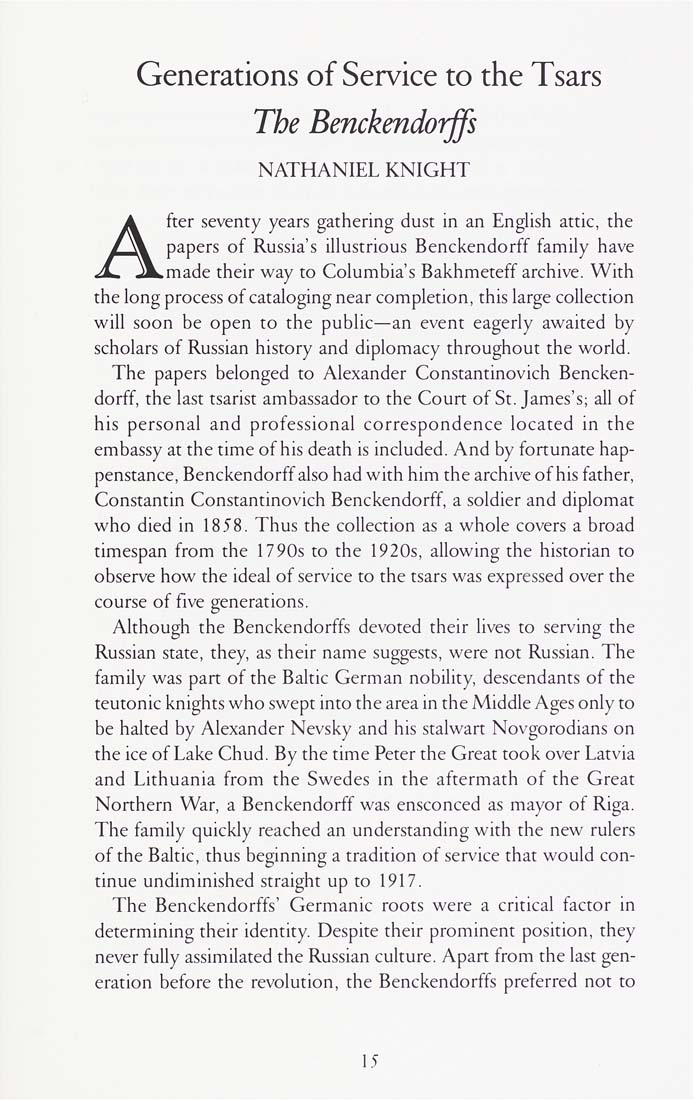Columbia Library columns (v.42(1992Nov-1993May))
(New York : Friends of the Columbia Libraries. )
|
||
|
|
|
|
| v.42,no.3(1993:May): Page 15 |

Generations of Service to the Tsars The Benckendorffs NATHANIEL KNIGHT After seventy years gathering dust in an English attic, the papers of Russia's illustrious Benckendorff family have made their way to Columbia's Bakhmeteff archive. With the long process of cataloging near completion, this large collection will soon be open to the public—an event eagerly awaited by scholars of Russian history and diplomacy throughout the world. The papers belonged to Alexander Constantinovich Bencken¬ dorff the last tsarist ambassador to the Coun of St. James's; all of his personal and professional correspondence located in the embassy at the time of his death is included. And by fortunate hap¬ penstance, Benckendorff also had with him the archive of his father, Constantin Constantinovich Benckendorff, a soldier and diplomat who died in 1858. Thus the collection as a whole covers a broad timespan from the 1790s to the 1920s, allowing the historian to observe how the ideal of service to the tsars was expressed over the course of five generations. Although the Benckendorffs devoted their lives to serving the Russian state, they, as their name suggests, were not Russian. The family was part of the Baltic German nobility, descendants of the teutonic knights who swept into the area in the Middle Ages only to be halted by Alexander Nevsky and his stalwart Novgorodians on the ice of Lake Chud. By the time Peter the Great took over Latvia and Lithuania from the Swedes in the aftermath of the Great Northern War, a Benckendorff was ensconced as mayor of Riga. The family quickly reached an understanding with the new rulers of the Baltic, thus beginning a tradition of service that would con¬ tinue undiminished straight up to 1917. The Benckendorffs' Germanic roots were a critical factor in determining their identity. Despite their prominent position, they never fully assimilated the Russian culture. Apart from the last gen¬ eration before the revolution, the Benckendorffs preferred not to 15 |
| v.42,no.3(1993:May): Page 15 |







